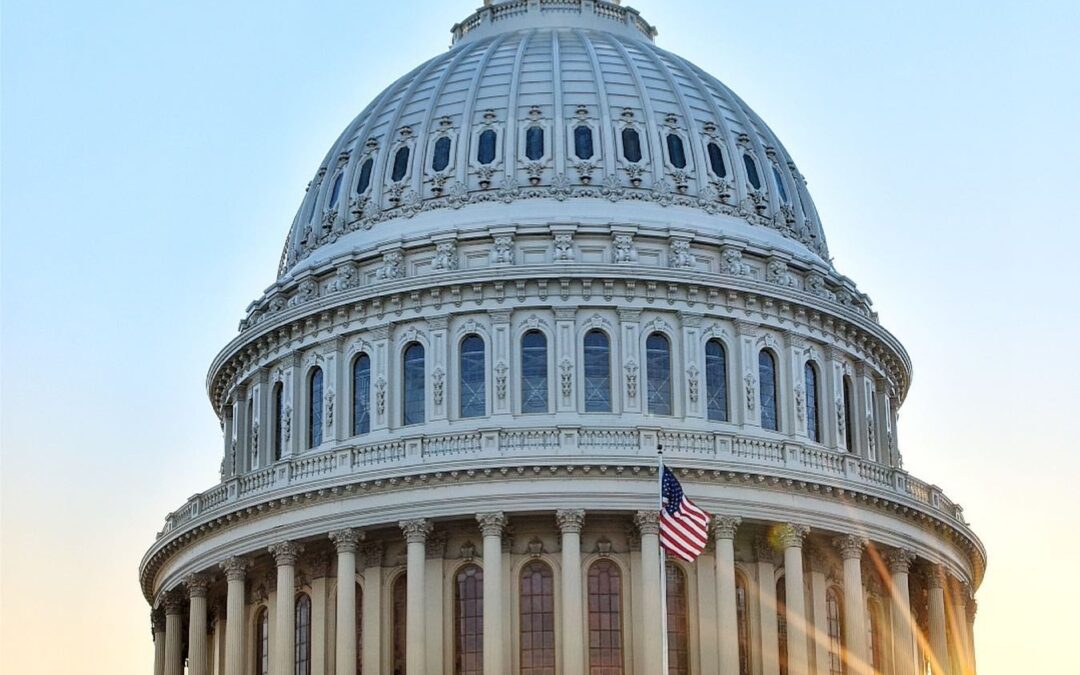
by Jacob Love | Jul 16, 2025 | Featured News, Housing News, Uncategorized
On July 4th, the federal government enacted a taxing and spending bill (the “Bill”) that will have enormous consequences for the American public. The top-line view of the legislation is that it expands and enacts tax cuts that will add trillions of dollars to the National Debt, while imposing historic slashes to safety net programs like Medicaid and SNAP. CHAPA notes that the Bill makes a few significant housing-related policy changes that could have a positive long-term effect on housing affordability. But, in the immediate term, the Bill’s steep rollback of benefits programs will drain vulnerable Bay Staters’ pockets and make the Commonwealth’s sky-high housing costs even more burdensome.
Potential Long-Term Housing Positives
From an affordable housing perspective, the Bill’s most constructive change is its expansion of the Low-Income Housing Tax Credit (“LIHTC”) Program. Beginning in 2026:
- There will be a 1.12 multiplier added to the formula for calculating each state’s annual allocation of “9 Percent” LIHTC credits, which will increase the total dollar value of those allocations by 12%; and
- The threshold of public activity bond (“PAB”) financing needed to qualify for “4 Percent” LIHTC credits will drop from 50% to 25%, theoretically allowing states to use their limited annual supply of PABs to ensure more projects qualify for credits.
These changes will increase the resources available to developers for the production and preservation of affordable housing on an annual basis going forward.
On top of LIHTC expansion, the Bill makes permanent two programs that can be used to fund housing development in distressed communities: the Opportunity Zones “OZ” Program and the New Markets Tax Credit “NMTC” Program. These initiatives aim to direct resources into low-income areas by providing tax breaks to people who invest in qualifying business activities, including housing development, in those areas.
The original OZ Program, created in 2017 and set to expire in 2026, allowed governors to designate 25% of low-income census tracts (“LICs”) in their states as OZs. It also said that 5% of designations could be for non-LIC tracts adjacent to LICs. Some early data indicate that OZ financing has flowed heavily toward multi-family developments. But, contrary to the spirit of the Program, evidence also suggests that developments receiving OZ funding are mostly market-rate and concentrated in higher income “adjacent” tracts.
The Bill corrects the latter issue by requiring periodic re-designation of OZs and eliminating the loophole for non-LIC tracts. But it does not build in any affordability requirements for residential projects receiving OZ funding. Including affordability is critical to ensuring that the Program benefits those living in targeted low-income areas.
Finally, the Bill’s extension of the NMTC Program, which was set to expire this year, represents a win for affordable and mixed-use development in underserved communities.
Major Negatives
The financial harm that low-income Americans will experience from the Bill’s provisions, including tax changes and well over a trillion dollars in SNAP and Medicaid cuts over ten years, cannot be overstated. Just to name a few major consequences:
- 11.8 million people will lose their health insurance by 2034, according to an estimate from the Congressional Budget Office;
- 22.3 million families will lose some or all of their monthly SNAP benefits, per an analysis from the Urban Institute; and
- Post-tax incomes for the poorest Americans will fall by nearly $600 per year based on projections from the Yale Budget Lab.
People who struggle to make ends meet will now face more out-of-pocket costs for food and medical care, forcing them to make impossible choices with shoe-string budgets. For Massachusetts residents—who already face a severe housing shortage and extreme rent burdens—this will only exacerbate housing insecurity.
Additionally, the Bill undermines housing affordability by eliminating incentives for green housing production and energy efficiency improvements, and ballooning the National Debt. A higher National Debt can drive up interest rates and inflation, making it more expensive to both build and buy homes.
As things continue to happen rapidly in D.C., we invite everyone to stay up to date by attending CHAPA’s Federal Housing Policy Check-Ins: https://chapa.org/all-events/?event=233980.

by Jordan Stocker | May 27, 2025 | Featured News, Housing News, Uncategorized
The Massachusetts Senate passed its $57.9 billion FY2026 budget last week, adding $43.5 million through more than 300 adopted amendments. The budget includes important progress on housing priorities, with investments in emergency rental assistance, first-generation homeownership, and fair housing enforcement. However, several high-priority programs included in the House received lower funding or were not included in the Senate version.
As the budget moves to Conference Committee, advocates are urging lawmakers to adopt the strongest funding and policy provisions from both chambers to meet the scale of the Commonwealth’s housing needs.
Senate Budget Additions (Based on SWM Amendment/Section Numbers)
- Residential Assistance for Families in Transition (RAFT) – Line Item 7004-9316
$225 million
Maintains the Senate’s higher funding level and adopts Amendment 557, which directs the Executive Office of Housing and Livable Communities (EOHLC) to develop a statewide homelessness prevention strategy and evaluate the removal of barriers to programs like RAFT, including the potential elimination of the “notice to quit” requirement.
- Saving Toward Affordable and Sustainable Homeownership (STASH) – Line Item 7006-0011
$500,000 (via Amendment 19)
Adds targeted funding for first-generation homebuyers through the Massachusetts Affordable Housing Alliance, supporting matched savings accounts and homeownership education.
- Housing Consumer Education Centers (HCECs) – Line Item 7004-3036
$5.7 million (via Amendment 428)
Restores some of the funding for regional housing counseling and tenant assistance services after earlier cuts, though funding remains below the prior-year level of $8.97 million.
- Housing Assistance for Reentry Transition – Line Item 7004-9034
$3.12 million (via Amendment 848)
Supports stable housing for individuals returning from incarceration. Amendment language ensures carry-forward of unspent funds to sustain services.
- Department of Mental Health Rental Subsidy Program – Line Item 7004-9033 (via Amendment 130)
This amendment proposed increasing funding for rental subsidies for Department of Mental Health (DMH) clients by $500,000, from $16,548,125 to $17,048,125, to better meet the housing needs of individuals with mental health challenges. The amendment was not adopted.
- Massachusetts Fair Housing Center and Southcoast Fair Housing – Line Item 7004-0099 and 7004-0107 (earmark via Amendment 10)
$275,000
Includes $200,000 for the Massachusetts Fair Housing Center and $75,000 for SouthCoast Fair Housing to support fair housing enforcement and outreach in Western Massachusetts and the South Coast following the loss of federal funding.
- Public Housing Operating Subsidies – Line Item 7004-9005
$116 million
Senate funding exceeds the House’s $115.6 million by $400,000, helping local housing authorities maintain operations and address quality and safety needs.
- Senate Broker Fee Language – Outside Sections 31 and 38
Clarifies that broker fees must be paid by the party who hires the broker. Ensures tenants aren’t charged for services they didn’t request, offering stronger protections than the House version, which permits fees with written disclosure even when the broker was hired by the landlord.
Key Priorities For Further Advocacy
- Office of Fair Housing and Fair Housing Trust – Line Item 7004-0099 (Amendment 171)
Proposed $5 million to launch the new Office, fund the Fair Housing Trust, and support U.S. Department of Housing and Urban Development (HUD)-aligned fair housing efforts. The amendment was not adopted.
- Executive Office of Housing and Livable Communities (EOHLC) Administration – Line Item 7004-0099 (Amendment 20)
Amendment ECO 20 proposed increasing funding for the Executive Office of Housing and Livable Communities from $15,573,388 to $22,235,340 to strengthen the agency’s administrative capacity. The amendment was not adopted.
- Small Properties Acquisition Fund – New Line Item (Amendment 89)
Proposed $1 million to help nonprofit organizations acquire and preserve small multifamily homes. The amendment was withdrawn.
- Healthy Homes Program – New Line Item
A proposed $5 million line item to address mold, lead, and other housing-related health risks was withdrawn and not included.
- Massachusetts Rental Voucher Program (MRVP) – Line Item 7004-9024
Funded at $253.3 million in the Senate—$4.8 million less than the House’s $258.1 million level.
- Tenancy Preservation Program (TPP) – Line Item 7004-3045
TPP received no funding in either budget. Amendment ECO 105 proposed $42,755 to retain a dedicated line item, but it was not adopted. The program will be supported this year through MassHousing funding.
- Access to Counsel – Line Item 0321-1800
Not funded in the Senate budget. The House includes $3 million to provide legal representation for tenants facing eviction, a key strategy for homelessness prevention.
What’s Next
The FY2026 budget now goes to a Conference Committee, a group of House and Senate lawmakers responsible for reconciling the two versions into a final budget.
Housing advocates are urging the committee to adopt the strongest funding levels and policy provisions from both chambers to address housing needs across Massachusetts. CHAPA will be drafting a letter to conferees to ensure that each housing program receives the necessary funding and support to promote stability, affordability, and equity statewide.
Please see an updated version of our budget tracker here.
by Jordan Stocker | Mar 16, 2025 | Uncategorized
On March 12, CHAPA joined housing advocates, constituents, and nonprofit organizations for Cookie Day, an annual event pushing for increased investment and stability in the Massachusetts Rental Voucher Program (MRVP). Led by Mass Alliance of HUD Tenants, the event was organized in partnership with EMPath, 2Life Communities, the Massachusetts Coalition for the Homeless, The Boston Foundation, and many others. It highlighted the urgent need for expanded rental assistance, as MRVP currently supports nearly 11,000 low-income households, yet rising housing costs continue to leave many struggling to afford rent.
Constituents and advocates shared firsthand how MRVP has provided security, opportunity, and a path toward financial independence, while lawmakers reaffirmed their commitment to strengthening the program. Speakers included Joint Committee on Housing Chairs Senator Julian Cyr and Representative Richard Haggerty, MRVP Codification bill sponsors Rep. Adrian Madaro and Sen. Joan Lovely, and Senator Lydia Edwards, a longtime housing advocate. Edwards, who was recognized for her efforts and honored with the “Big Cookie” award, emphasized the program’s role in preventing displacement and keeping communities strong.
After the speaking program, advocates met with legislators throughout the State House, delivering house-shaped cookies as a reminder of the need for sustained support for the program. Advocates commended legislators for recent increases to MRVP. They also urged lawmakers to allocate $300 million to MRVP in FY26, which would assist approximately 2,300 more low-income households, and to codify the program to ensure long-term certainty for tenants and property owners. Cookie Day reinforced that housing stability through MRVP plays a crucial role in keeping Massachusetts a place where people of all incomes can live and thrive


